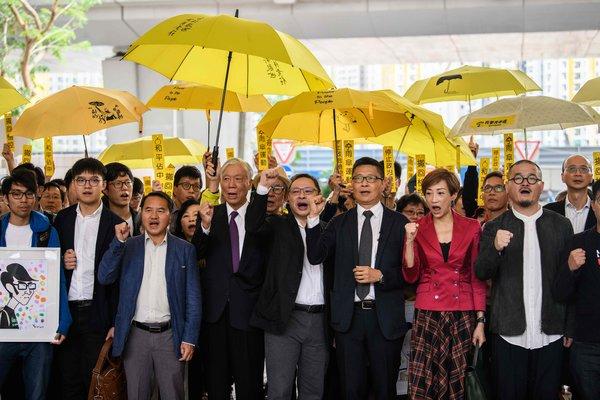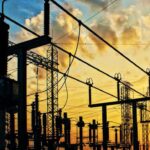A march in the Hong Kong satellite town of Tuen Mun escalated on Saturday as riot police fired tear gas at anti-government protesters who fled down side streets and into surrounding shopping malls.
Protesters dressed in gas masks, hard hats, and long-sleeved black shirts built barricades out of street rails and other materials, breaking apart sidewalks to gather bricks that they carted to the frontline in shopping carts.
One fully-masked protester acted as a lookout, sporting a binoculars to keep watch on the movement of police.
The march was originally planned by local residents angered by the local government office’s alleged failure to respond to their noise complaints.
The event was later co-opted by anti-government protesters.
Bystanders jeered at police from beneath a flyover they were occupying.
One woman yelled, “Police should protect Hong Kong people, not attack them – where is your conscience?”
As the police advanced, Molotov cocktails were thrown, one of which started a small fire in the street.
A security guard quickly managed to douse the flames.
The company that runs Hong Kong MTR public transport network closed Tuen Mun train station at 1 pm (0500 GMT) for “safety reasons,” limiting escape routes from the scene.
Train stations have also closed in the nearby town of Yuen Long, where clashes are expected this evening at a sit-in marking two months since an attack on protesters by men thought to be associated with the Triads, a gang operative based in Hong Kong and South China.
Anti-government protests have continued throughout the city despite Chief Executive Carrie Lam formally withdrawing the controversial extradition bill that had triggered the nearly four-month-long crisis.
Their demands have grown to include an independent inquiry into police violence against protesters and electoral reforms.
Hong Kong is a former British colony that returned to Chinese sovereignty in 1997.
It was promised special rights and privileges until 2047 under the “one country, two systems” agreement, but many residents feel this arrangement is increasingly under threat. (dpa/NAN)

 Join Daily Trust WhatsApp Community For Quick Access To News and Happenings Around You.
Join Daily Trust WhatsApp Community For Quick Access To News and Happenings Around You.


